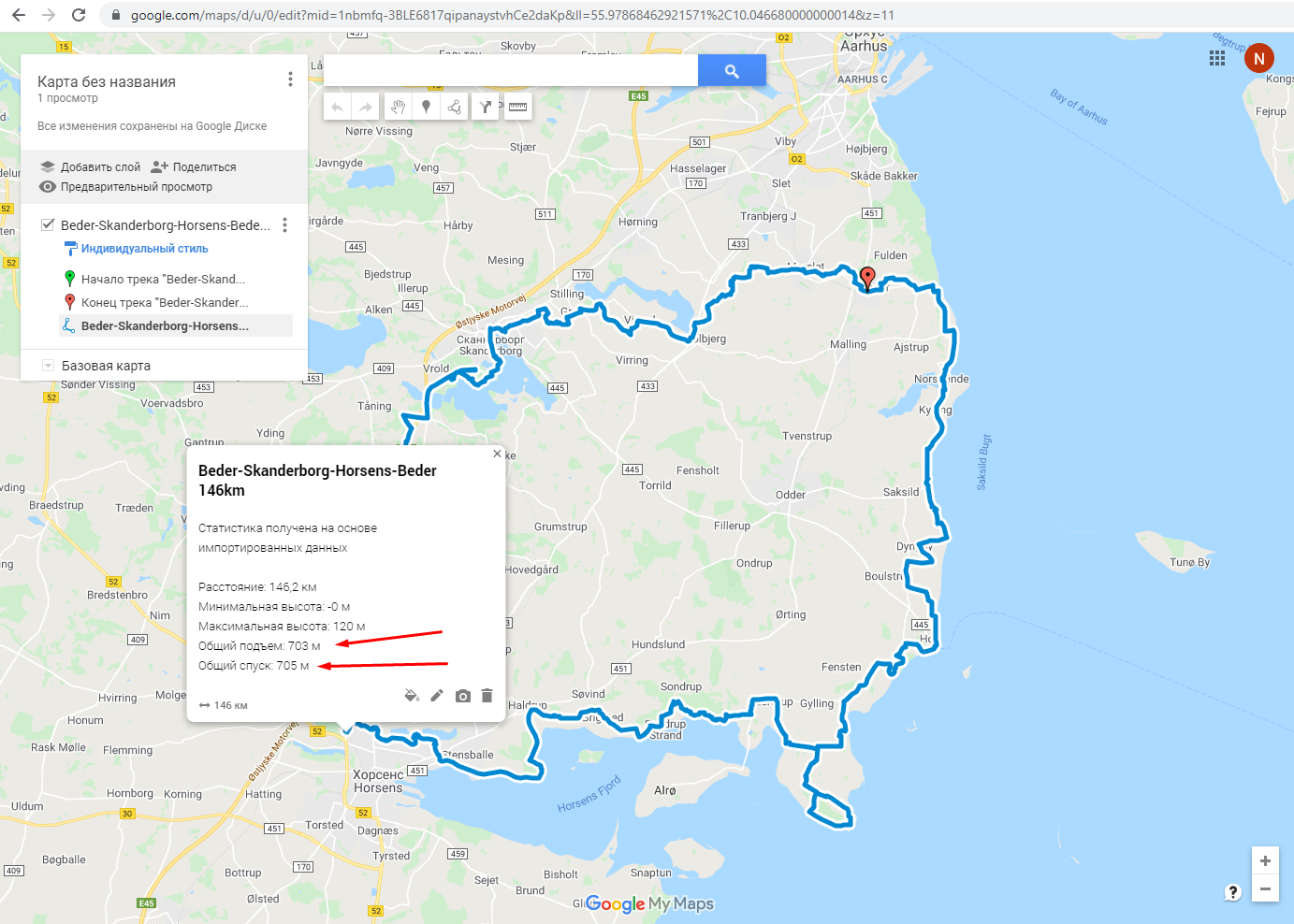Answer the question
In order to leave comments, you need to log in
How to get data (total ascent/descent) from a route - Google map API?
I parse the GPX file and get data from it about the route time and also the distance of the route. I can't find any information anywhere on how to extract "total ascent" and "total descent" data from a route. Information output example

My code:
jQuery.ajax({
type: "GET",
url: jQuery('#url_file').val(),
dataType: "xml",
success: function(xml) {
var points = [];
var bounds = new google.maps.LatLngBounds ();
jQuery(xml).find("trkpt").each(function() {
var lat = jQuery(this).attr("lat");
var lon = jQuery(this).attr("lon");
var p = new google.maps.LatLng(lat, lon);
points.push(p);
bounds.extend(p);
});
/*---TIME------*/
jQuery(xml).find("wpt time").each(function() {
var time = jQuery(this).text();
var b = time.split('T')[1];
var c = b.split('Z')[0];
var splitted = c.split(':');
jQuery('.stats_r .time').text(splitted[0]+'H '+splitted[1]+'MIN.');
});
/*---------*/
var poly = new google.maps.Polyline({
path: points,
strokeColor: "#01579B",
strokeOpacity: 1,
strokeWeight: 4
});
var startMarker = new google.maps.Marker({
position:poly.getPath().getAt(0),
map:map
});
var endMarker = new google.maps.Marker({
position:poly.getPath().getAt(poly.getPath().getLength()-1),
map:map
});
/*--------DISTANCE-------*/
google.maps.LatLng.prototype.kmTo = function(a){
var e = Math, ra = e.PI/180;
var b = this.lat() * ra, c = a.lat() * ra, d = b - c;
var g = this.lng() * ra - a.lng() * ra;
var f = 2 * e.asin(e.sqrt(e.pow(e.sin(d/2), 2) + e.cos(b) * e.cos
(c) * e.pow(e.sin(g/2), 2)));
return f * 6378.137;
}
google.maps.Polyline.prototype.inKm = function(n){
var a = this.getPath(n), len = a.getLength(), dist = 0;
for(var i=0; i<len-1; i++){
dist += a.getAt(i).kmTo(a.getAt(i+1));
}
return dist;
}
jQuery('.stats_r .distance').text(poly.inKm().toFixed(2)+' KM');
/*---------------*/
poly.setMap(map);
map.fitBounds(bounds);
}
});Answer the question
In order to leave comments, you need to log in
Didn't find what you were looking for?
Ask your questionAsk a Question
731 491 924 answers to any question